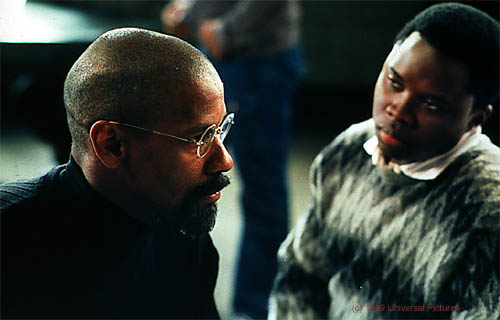



He spoke recently at a fund raising event for the Yellowhead Tribal Council First Nation College in Edmonton, Alberta.
Carter was a black middleweight boxer wrongly convicted of a triple murder and set up by lying police, circumstantial evidence and an inadequate defence attorney. In 1974 he wrote his book 'The Sixteenth Round' which he sent to Dylan "because of his prior commitment to the civil rights movement."
Dylan wrote the song 'Hurricane' which was released as a single and played benefits at the Clinton, New Jersey Correctional Institute for women and at Madison square Gardens in New York. Carter endured 19 years in jail, going through a tortuous and convoluted appeals process before being released in 1985. Charges against him were finally dismissed in 1988.
"I sat in the hole and I hated everyone," he said. "In a mirror I saw a monster and it shocked me."
Nothing in his entire life has been easy. As a boy he stuttered badly, until at 18-years-old a friend in the U.S. Marines "helped him understand he was a person of worth." Up until then he talked with his fists. In the Marines he learned to use his fists to become a champion boxer.
"When the rules change what do you do?" asked Carter.
For Carter the rules changed when he was convicted of murders he didn't commit and sentenced to three lifetime prison terms. Carter's dream ended when he woke up blind in one eye. He knew he would never fight again. Lose of his dream was worse than lose of his sight. After unsuccessful appeals and a second trial he was left without hope until a 16-year-old black named Lesra and his friends took up his cause. "Hate put me in prison," said Carter. "Love busted me out."
After 20 years in prison he discovered he could still dream. Substance triumphed over form, said Carter. The truth is that substance is always more powerful than form.
Thirty five years after his boxing career ended he is the only person outside the ring to be awarded the Middle Weight Championship of the World.
Lesra's dream was to become a lawyer. Today he is a crown prosecutor in British Columbia. If he had stayed in Brooklyn, today he would be either dead or strung out on drugs or locked up in jail.
Two million people are in prison in the United States costing $100 billion a year. One third of them are black men.
In Canada only four percent of the population is Native yet up to 40 percent of inmates in Canadian prisons are aboriginal.
Access to opportunities is the key to helping First Nation people in Canada.
Carter's message to First Nation's youth is positive. Ed Burnstick, a student in YTC's First Nation Management Program, was amazed at his lack of bitterness and his positive message and example to young people. Weaved throughout his story, he delivers a multitude of folksy sayings. Some of these include: